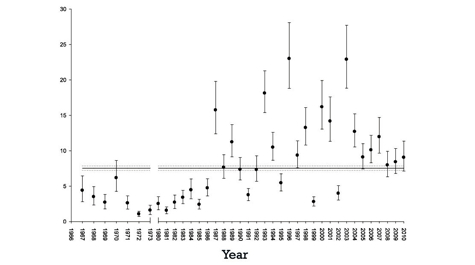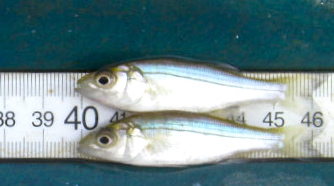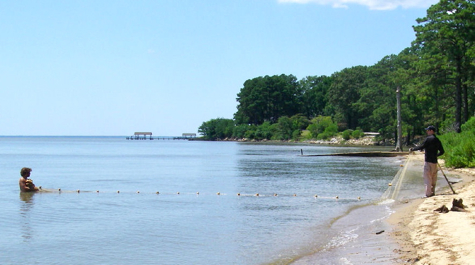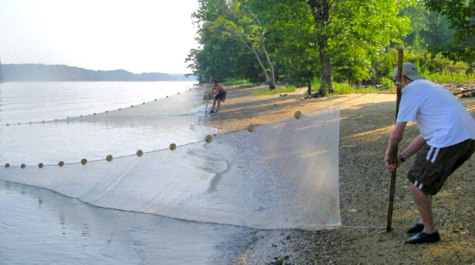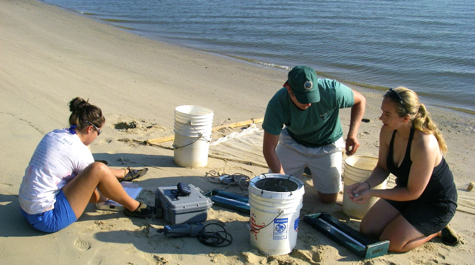VA waters produce average crop of young striped bass in 2010
Preliminary results from an annual survey of striped bass by researchers at the Virginia Institute of Marine Science suggest that an average number of young-of-year stripers—fish born this year—will continue to enter the adult population in the Virginia portion of Chesapeake Bay.
The results are good news for the recreational and commercial anglers who pursue this popular game fish. The results are also good news for Chesapeake Bay, where striped bass play an important ecological role as top predators.
The 2010 study, formally known as the Juvenile Striped Bass Seine Survey, recorded 9.0 fish per seine haul, which is not significantly different from the historic average of 7.5 fish per seine haul. VIMS has been conducting the survey annually since 1967 for the Virginia Marine Resources Commission (VMRC).
Survey results show that numbers of young-of-the-year striped bass in Virginia have now been average to above-average since 2003. Results from a similar survey in Maryland show that numbers of juvenile striped bass during the last three sampling years have been below average but remain above the level which would be deemed recruitment failure.
Professor Mary Fabrizio, who directs the Juvenile Striped Bass Seine Survey at VIMS, notes that the economic and ecological value of striped bass lends significant interest to the year-to-year status of their population. "By estimating the relative number of young-of-year striped bass," she says, "our survey provides an important measure of annual and long-term trends in the Bay's striped bass population."
The VIMS Juvenile Striped Bass Seine Survey, managed by Leonard Machut, currently samples 18 stations in the Rappahannock, York, and James River watersheds. Each year, biologists sample each site 5 times from early July through mid-September, deploying a 30.5 meter-long (100-foot) seine net from the shore. They count each netted fish, measure its fork length (the distance from snout to the fork in the tail), and return it to the water. These young striped bass generally measure between 40 and 100 mm (1.5-4 inches). Survey scientists measured a total of 1,718 juvenile striped bass in Virginia waters in 2010.
The Bay's striped bass populations have rebounded from historic lows in the late 1970s and early 1980s, following fishing bans enacted by Delaware, Maryland, and Virginia in the mid- to late-1980s. Since then, the Bay's striped bass population has increased to the point that striped bass are now considered recovered.
For more information about the Virginia Juvenile Striped Bass survey visit the survey's webpage at http://www.fisheries.vims.edu/trawlseine/sbmain.htm.

